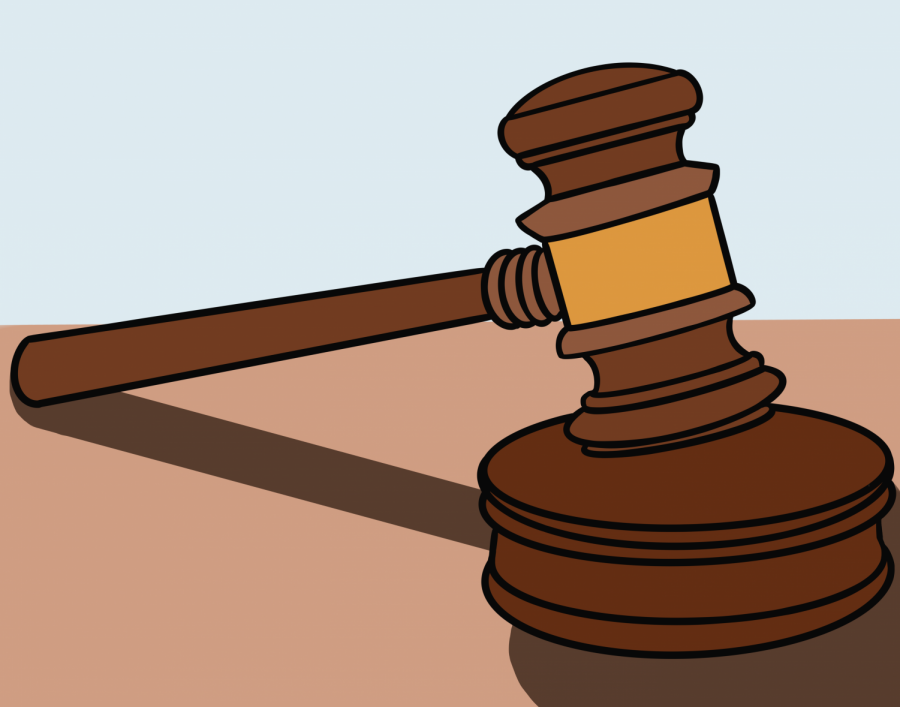Major court cases offer opposing views of “justice”
December 8, 2021
In the past month, there have been multiple high profile court cases that have made national headlines: the trial of the killers of Ahmaud Arbery and the trial of Kyle Rittenhouse.
Ahmaud Arbery was murdered on Feb. 23, 2020 by father and son Gregory and Travis McMicheal and their neighbor William Bryan. Arbery was out jogging during the afternoon of the twenty-third, and the three men chased him down in their truck. Armed with pistols and a shotgun; they shot him three times.
The men alleged that Arbery was responsible for a series of break-ins in their neighborhood, although none were ever officially reported to the police. They also argued that this was an act of self defense, as they told the court Arbery was attacking them and they were acting in the interests of both themselves and their neighborhood.
In every sense , it is impossible to say this was an act of self defense. These men armed themselves, got in their car to assault and eventually kill Arbery, who was unarmed and was merely jogging in the neighborhood. This looks less like an attempted citizens arrest and more like a public lynching.
This case has the backings of racial motivations as well, as Arbery, a black man, was murdered by three white men. In the video of Arbery’s murder, filmed by one of the accomplices, Travis McMicheal is heard using racial slurs as Arbery lifelessly lays on the ground.
At the end of this trial, justice was served. All three men were found guilty and are awaiting their sentencing, facing life imprisonment.
Conversely, the case of Kyle Rittenhouse and its decision have come under rightful scrutiny, as justice was not served.
Rittenhouse was present at the Kenosha protests following the police shooting of an unarmed black man, Jacob Blake. However, he was there with the intention of defending businesses and in the process shot three protesters, killing two.
Rittenhouse, who was 17years old at the time, was charged with first degree reckless homicide, first degree intentional homicide and attempted first degree intentional homicide along with a misdemeanor weapons charge.
The weapons charge was dismissed, based on a Wisconsin statute in regards to the length of the gun barrel. As for the rest , Rittenhouse was found not guilty of all charges, citing an argument of self defense that led to his eventual acquittal.
I believe this finding to both be unjust and has the potential to set a dangerous precedent moving forward for any large scale peaceful protests.
To me, it is a similar situation to that of the Arbery case. Rittenhouse, being there with an AR-15, established himself as a dangerous presence, clearly to instill some sort of fear amongst the peaceful protestors. Especially when you take into account videos Rittenhouse posted to his TikTok, talking about how he yearned to shoot at protestors.
People with a similar perspective who see how this case went, can now effectively bring a gun to a protest and open fire upon the protesters while citing self defense as a way to avoid sentencing similar to Rittenhouse.
This is an indication that there needs to be wide sweeping changes in gun rights and how the court system views self defense laws.
Rittenhouse, a 17-year-old at the time of the shooting, should have never been in a public setting with a rifle to begin with, and it is a failure of our system and a part of the depravation of the second amendment as a whole that brought him there to begin with.
These major cases over the month have shown the United States both how far we have come in dealing with racially motivated acts of violence, and how far we have to go in terms of gun rights and self defense laws in our country.
Dangerous precedents have been set and can affect the overall safety of people exercising their right to protest. It is up to those in power to recognize these dangers and keep the people safe, and for the people to keep their voices heard in this general discourse.






